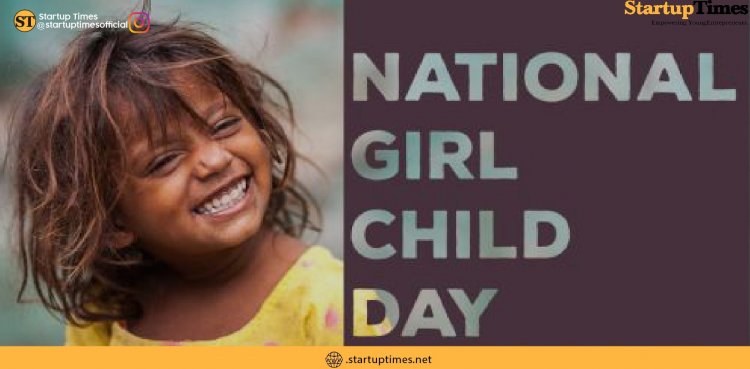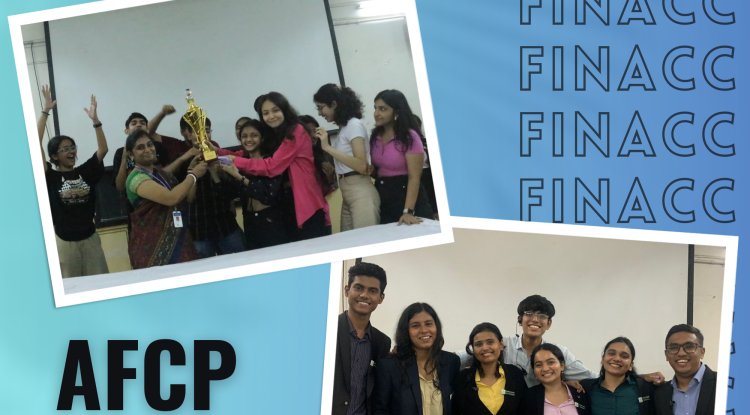Who am I?
Since times immemorial, women in India have been regarded with utmost respect and accorded prestige. For a nation to progress, it is essential to empower women. I am glad that India has been blessed with women pioneers who have broken the shackles of gender stereotypes in every field.

Who is your sister? I am she.
Who is your mother? I am she.
Day dawns the same for you and me.
From Innana's Journey to hell
National girl child day was an initiative of the Ministry of Women and Child Development in 2008. The objective behind celebrating the National Girl Child Day is to provide support and opportunities to Indian girls. It also aims to promote awareness about the rights of the girl child and increase awareness towards the importance of girl education and their health and nutrition.
Starting from female infanticide to gender inequality to sexual abuse, there is no dearth of issues as we know that in India, gender inequality is one of the major issues that is needed to be focused on and it exists in several areas, including legal rights, education, medical care, marriage, etc. Female feticide is another major issue that further affects the demographic problems in India.
So, on this day I want to talk about the rights of a girl child. At the age of 6 when instead of sending her to school, you made her learn household chores at 10 instead of letting her play games, you were teaching her household games at 16 instead of thinking about her career, you started worrying about her marriage at 24 instead of seeing her independent you just declared her as a burden on yourself. Think of all the stories and times when you discriminated against your daughters. They say “change starts from home”, so next time when you ask your daughter to help you in the kitchen, just think maybe you're raising a son who can't even make a cup of tea for themselves.
For so long, society has seen women as objects instead of human beings. Next time when you say that she is someone's daughter, wife, sister, mother, just remember that before all this, SHE IS SOMEONE and it's all that matters. But above all these points there are some rights for a girl child that are really empowering and one must know about them.
- Hindu Succession Act, 2005
Before the amendment was made in 2005, the Hindu Succession Act, 1956 stated that daughters only had a right to their father's property until they got married. As per the act, daughters would no longer be a part of her father's HUF (Hindu Undivided Family) once married.
But this provision was changed in September of 2005 and as per the amendment, the daughter, no matter married or unmarried, will always be taken as a member of her father's HUF and even has the right to be placed as the 'Karta' or manager of his HUF property.
The amendment basically opened the doors for daughters to be placed at an equal level with sons by giving them the same duties, rights, liabilities and disabilities that were earlier only restricted to sons.
This also removes the long-held notion that only sons can take the family forward as daughters are 'paraya dhan' since daughters can very well manage their father's property and wealth.
- The Prohibition of Child Marriage Act, 2006
Child marriage has been a practice that has long been a part of the Indian culture, which also created fear for the girls parents. Arranging for her dowry so early on, spending on her marriage and more were expenses that parents found to be burdening. So they thought of eliminating the girl only.
The law came into effect in 2007 and prohibited child marriage, that is, a marriage where either or both the bride and groom are underage or the bride is below 18 years and the groom is below 21 years of age. The government is likely to decide on revising the minimum age of marriage for girls and make it 21.
- Medical Termination of Pregnancy Act (1971)
While sex determination was and still remains a reality, a result of that would be the forceful termination of the pregnancy if the test showed the unborn child to be a girl. Thus, female foeticide was something that was steadily on the rise.
The pregnant woman was usually forced and pressured into getting it done, even against her wishes sometimes.
However, as per the Medical Termination of Pregnancy Act (1971) or MTPA section 3(4)(b) "no pregnancy shall be terminated except with the consent of the pregnant woman."
The husband's consent in this matter is not relevant therefore now, so if a husband wants the abortion but the wife does not, she has full right to go ahead with the pregnancy.
- Dowry Prohibition Act, 1961
As stated in the child marriage case, dowry has been a big deterrent for Indian parents when it comes to a girl child. The dowry practice of giving the husband and his family some wealth like cash, gifts and so on puts a great load of a burden, especially on poor families, as the groom's family would expect and even outright ask for expensive stuff before the marriage happens.
But with the Dowry Prohibition Act, 1961 the act of giving or taking dowry at the time of the marriage, either to the bride or the bridegroom and their families was penalized.
Essentially the very act of giving a dowry is a punishable offence, while asking for dowry is an even bigger offence.
- The Right of Children to Free and Compulsory Education Act, 2009
An old one but still a very important one would be the right to free and compulsory education for all of the age of 6 to 14 years.
The right extends to the entire country with the exception of Jammu and Kashmir and basically states that every child from the ages of 6-14 years has a right to free and mandatory education in a neighbourhood school. Also, no child is liable to pay any kind of fee or charges during this time that could prevent him/her from completing elementary education.
Apart from these few rights, there are also laws in place for equal and minimum wage between men and women, maternity laws and more.
These laws' object is very clear, that is, to show that a girl child is not a liability. In fact, these things empower the girl child in India and the only things that remain to be tackled are the social taboos and stereotypes and definitely the security part.













